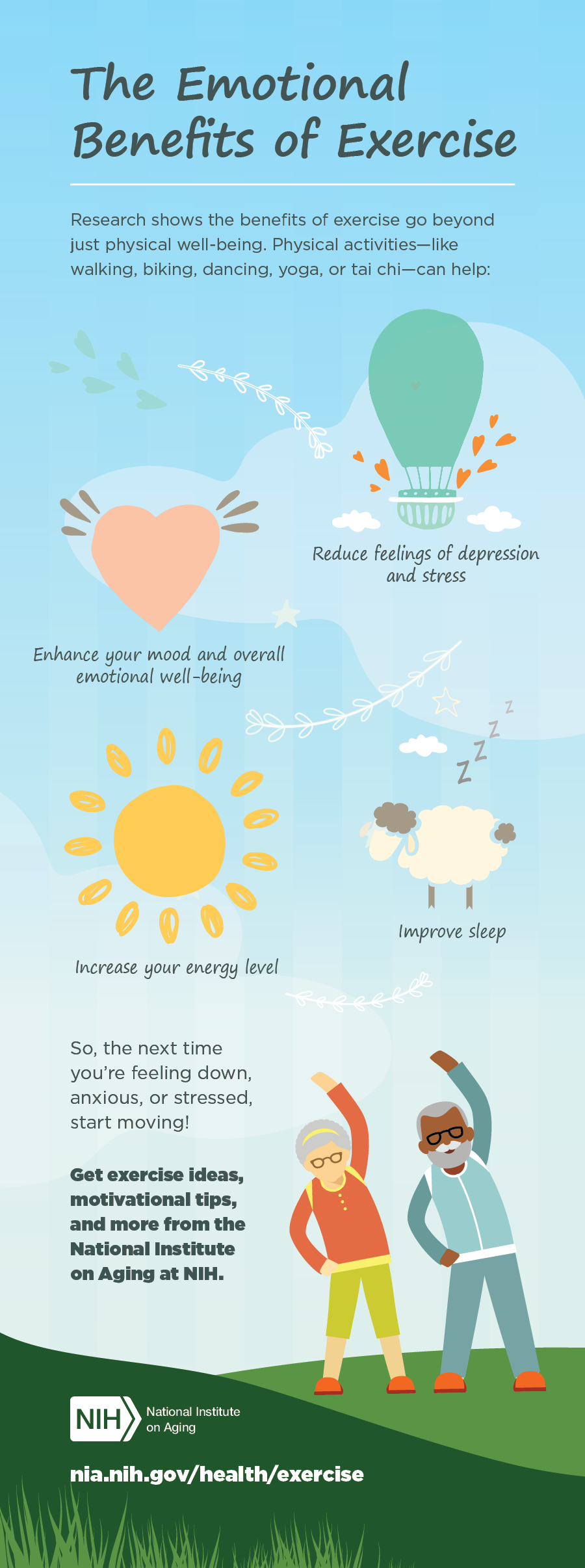Why is Walking Good for Mental Health : Enhancing Emotional Well-being
Walking boosts mental health by releasing endorphins and reducing stress, anxiety, and depression symptoms. Engaging in regular walking can enhance mood, increase self-esteem, and promote better sleep quality.
Numerous studies have shown that physical activity like walking is an effective way to improve mental well-being. The rhythmic motion and exposure to nature while walking can calm the mind and provide a sense of clarity and positivity. Not only does walking help to alleviate symptoms of mental health conditions, but it also promotes overall brain health and cognitive function.
Incorporating daily walks into your routine can have profound benefits for your mental health and well-being.
Physical Benefits Of Walking
Walking offers numerous physical benefits, but did you know it also has a positive impact on mental health? Engaging in regular walks can help reduce symptoms of depression, relieve stress, and improve overall mood and well-being. Take a step towards improving your mental health with this simple and accessible exercise.
Walking is not only beneficial for our physical health but it also has a positive impact on our mental well-being. One of the key physical benefits of walking is weight management. By engaging in regular walking sessions, you can effectively maintain and control your body weight.Weight Management
Walking is an excellent form of exercise for weight loss and weight management. It is a low-impact activity that helps burn calories and shed excess weight. Regular walking can speed up your metabolic rate and increase your calorie expenditure, making it an effective tool for maintaining a healthy weight. By incorporating walking into your daily routine, you can achieve gradual and sustainable weight loss. Furthermore, walking helps maintain muscle mass, which is important for increasing metabolism and preventing weight gain. It is a versatile form of exercise that can be easily adapted to different fitness levels and preferences. Whether you choose to walk briskly or at a leisurely pace, the key is to stay consistent and make it a part of your daily routine.Cardiovascular Health
In addition to weight management, walking also improves cardiovascular health. Regular walking sessions help improve blood circulation, strengthen your heart, and lower the risk of developing heart diseases. It is a simple yet effective way to keep your heart healthy and strong. By engaging in brisk walking, you can elevate your heart rate and increase the supply of oxygen to your muscles. This, in turn, enhances your cardiovascular endurance and helps in the efficient functioning of your heart and lungs. Walking also helps reduce blood pressure levels and lowers the risk of stroke. Moreover, walking is a natural way to boost your energy levels. It releases endorphins, the feel-good hormones, which can uplift your mood and reduce stress and anxiety. It promotes better sleep patterns, which are essential for overall well-being. So, let’s take a step towards better physical and mental health by incorporating walking into our daily routine. Its physical benefits, such as weight management and cardiovascular health improvement, can greatly contribute to our overall well-being.
Credit: sites.rutgers.edu
Mental Benefits Of Walking
Walking is not only beneficial for physical health but also holds significant advantages for mental well-being. In this post, we will delve into the mental benefits of walking, shedding light on how this simple activity can positively impact your mental health.
Stress Reduction
Walking helps reduce cortisol levels, which are known as the stress hormones. The rhythmic motion of walking calms the mind, easing feelings of anxiety and tension.
Improving Mood
Engaging in regular walks boosts the production of endorphins, commonly referred to as “feel-good” chemicals. This leads to a lifting of mood and helps in combatting feelings of sadness or depression.
Social Benefits Of Walking
Walking is not only beneficial for physical health but also offers various social benefits that can positively impact mental well-being. Engaging in regular walks provides opportunities for social interaction and connections with nature, which can enhance overall mental health.
Connecting With Nature
Walking allows individuals to immerse themselves in the natural world, away from the hustle and bustle of urban settings. Being amidst greenery, trees, and open spaces during a walk can have a calming effect on the mind, reducing stress and anxiety. The tranquil surroundings encountered during walks can provide a sense of peace and rejuvenation, contributing to improved mental well-being.
Opportunity For Social Interaction
Walking offers a chance to connect with others, whether it’s through organized group walks, walking clubs, or simply strolling with friends and family. Engaging in social interactions during walks can alleviate feelings of loneliness and create a sense of belonging and community. Conversation and connection with others while walking can offer emotional support and foster a sense of camaraderie, promoting positive mental health outcomes.

Credit: www.helpguide.org
How To Incorporate Walking Into Your Routine
Walking is a simple yet effective way to improve your mental health. It provides not only physical benefits but also helps to reduce stress, boost mood, and increase overall well-being. Incorporating walking into your routine doesn’t have to be complicated, and with a few simple strategies, you can make it a regular part of your day-to-day life.
Setting Goals
To make walking a consistent habit, it’s important to set goals. Start by determining how many days a week you want to walk and for how long. Set realistic and achievable goals to avoid feeling overwhelmed. Consider using a fitness tracker or app to track your progress and keep you motivated. Remember, every step counts, so even short walks can make a difference.
Finding A Walking Buddy
Walking with a buddy not only makes the activity more enjoyable but also holds you accountable. Find a friend, family member, or neighbor who shares your interest in walking and set regular walking dates. Having someone to talk to during your walks can also provide an opportunity for emotional support and connection, further enhancing the positive impact on your mental health.
Creating Opportunities
Look for ways to incorporate walking into your daily routine. Instead of taking the elevator, opt for the stairs. Park your car farther away from your destination and walk the remaining distance. If possible, consider walking or biking to work. Find ways to make walking a natural part of your daily activities, and you’ll find it easier to stick to your walking routine.
Making It Enjoyable
Make your walks more enjoyable by exploring new routes and scenic areas. Listen to your favorite music, audiobook, or podcast while walking. Engage your senses by paying attention to the sights, sounds, and smells around you. Consider joining a walking group in your community to meet like-minded individuals and make your walking experience social.
Conclusion
Walking is a simple, accessible, and effective way to boost your mental well-being. By setting goals, finding a walking buddy, and making it enjoyable, you can easily incorporate it into your routine. Start small, be consistent, and before you know it, you’ll be reaping the benefits of regular walking on your mental health.

Credit: www.nia.nih.gov
Frequently Asked Questions For Why Is Walking Good For Mental Health
How Does Walking Help Mental Health?
Walking boosts endorphins, reduces stress hormones, and improves mood, aiding in better mental health overall.
Why Is Walking Good For Anxiety?
Walking is beneficial for anxiety as it helps release endorphins, reduces stress hormones, and promotes relaxation. The physical activity encourages mindfulness and provides a distraction from anxious thoughts. Additionally, being outdoors in natural environments can further calm the mind and improve overall well-being.
Why Does Walking Make Me Happier?
Walking boosts endorphins, leading to improved mood and happiness. It also reduces stress and anxiety levels.
What Are 5 Ways To Improve Mental Health?
Engage in regular exercise, maintain a nutritious diet, get sufficient sleep, practice mindfulness and seek professional help.
Conclusion
Taking a daily walk can be a powerful tool in maintaining good mental health. From reducing stress and anxiety to boosting mood and overall well-being, walking offers numerous benefits for the mind. Incorporating walking into your routine can be a simple yet effective way to prioritize your mental wellness.







